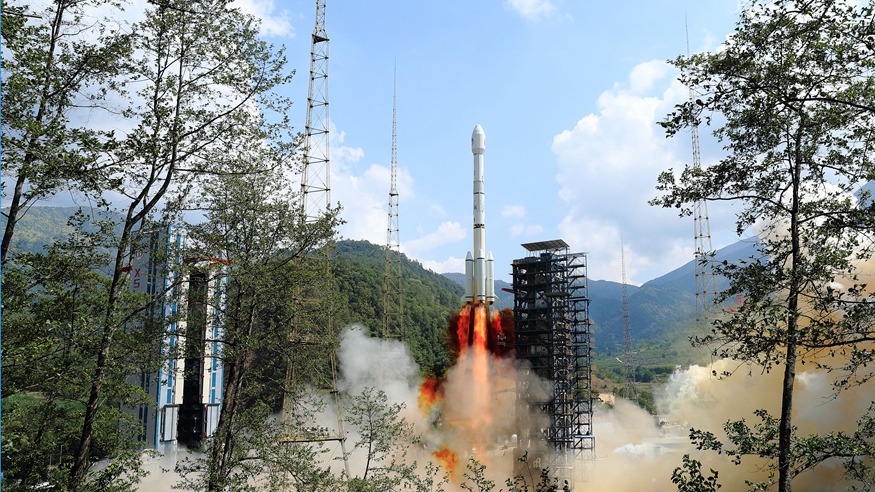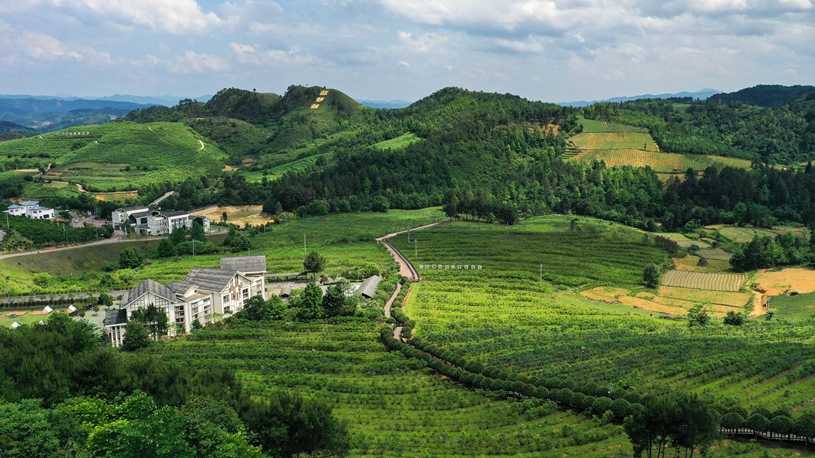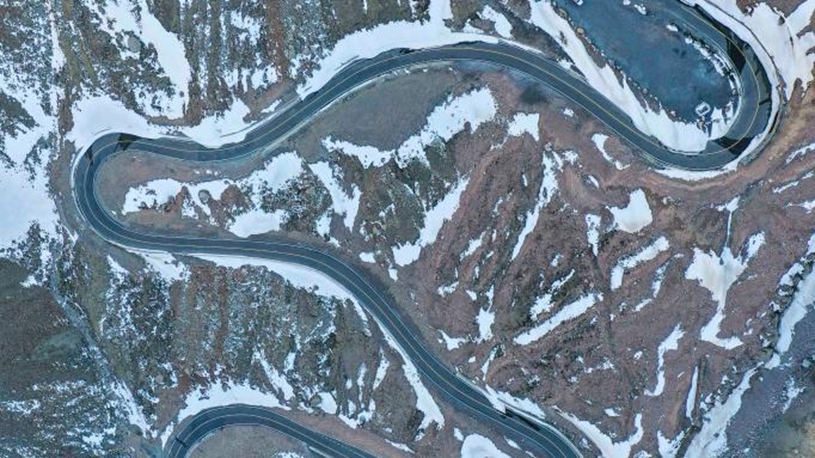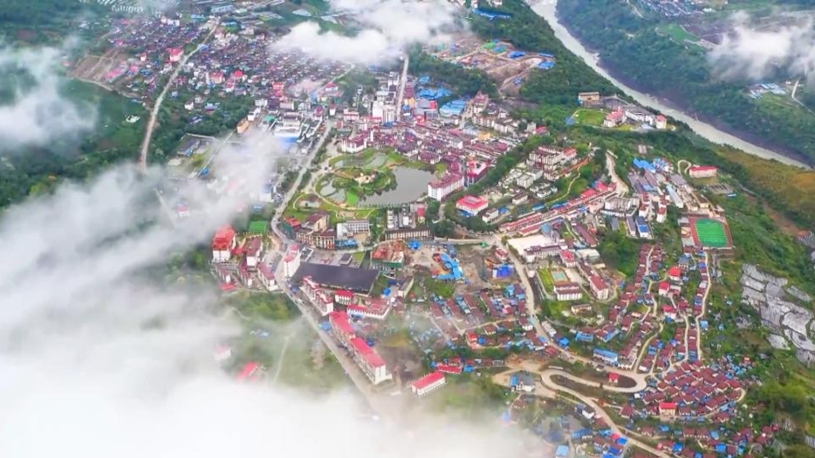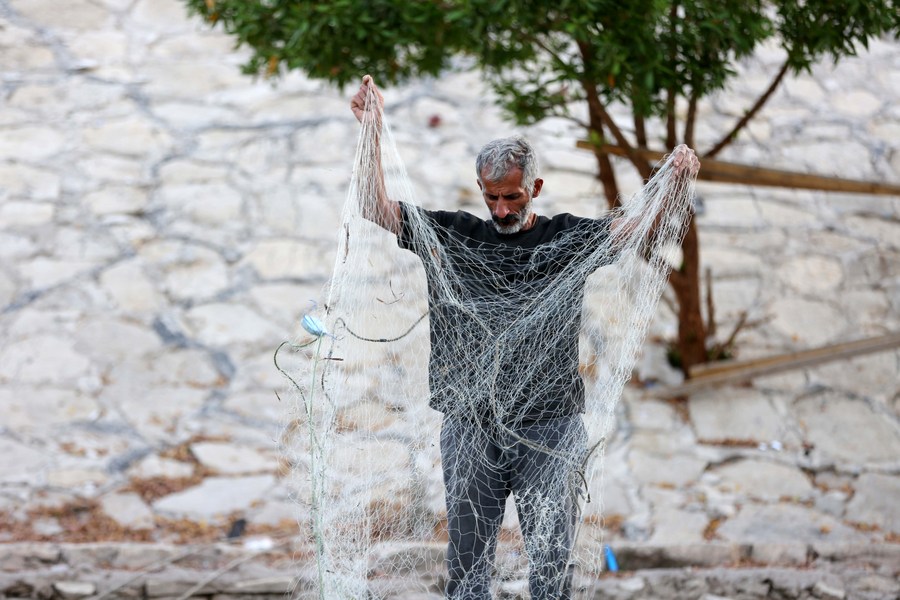
A fisherman prepares his nets on the banks of the Tigris River in Baghdad, Iraq, on May 16, 2023. (Xinhua/Khalil Dawood)
BAGHDAD, May 21 (Xinhua) -- Hashim al-Musawi, a 76-year-old fisherman living on the western bank of the Tigris River in central Baghdad, feels heart-breaking when he sees that the river becomes muddy and polluted.
The old fisherman learned to fish from his father, but today fishing can hardly feed his family.
Fish production is one of the Iraqi vital economic sectors, but it has suffered many setbacks in recent years due to climate change, water scarcity, pollution by sewage and industrial waste, as well as overfishing.
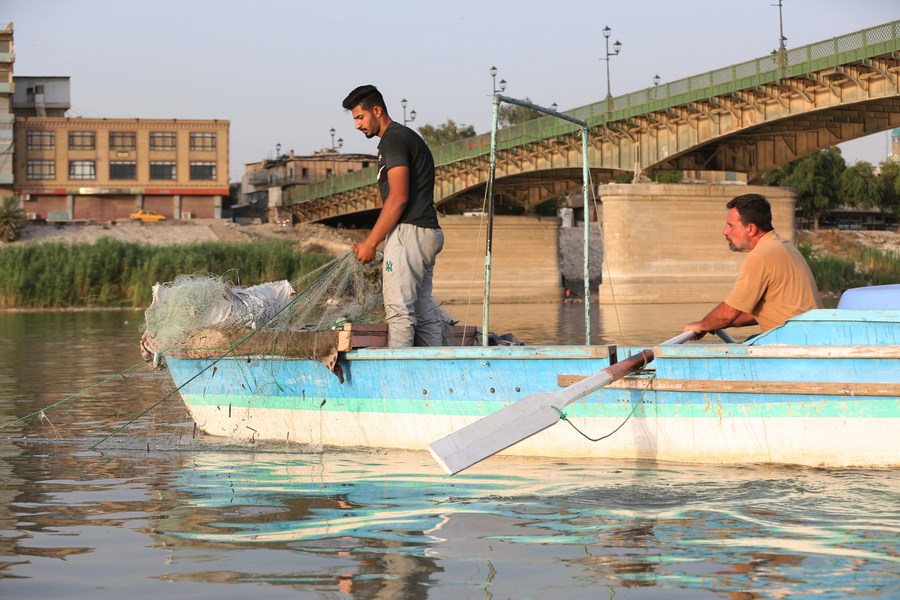
Fishermen catch fish with nets in the Tigris River, Baghdad, Iraq, on May 16, 2023. (Xinhua/Khalil Dawood)
Hazim Dahmoush, head of the Fish Hatchery Department at the Iraqi Ministry of Agriculture, told Xinhua that water scarcity is the major problem that faces the fish-producing process in Iraq as increasing drought has led to a significant decline in the country's fisheries.
In addition, Dahmoush said that neglect of management, including fishing during the breeding season and overfishing, were also among the problems facing the fish industry in Iraq.
The Fish Hatchery Department is struggling to revive the fish stock by pouring millions of artificially-bred fish fry into water bodies, but the fingerlings are also affected by water scarcity as it requires a constant water flow.
Dahmoush spent a two-month training course in Shanghai in 2016 on fish farming and aquaculture and believes the Chinese experience in fish farming, such as using recirculating aquaculture systems, could effectively avoid the risks of deterioration of fish stocks.
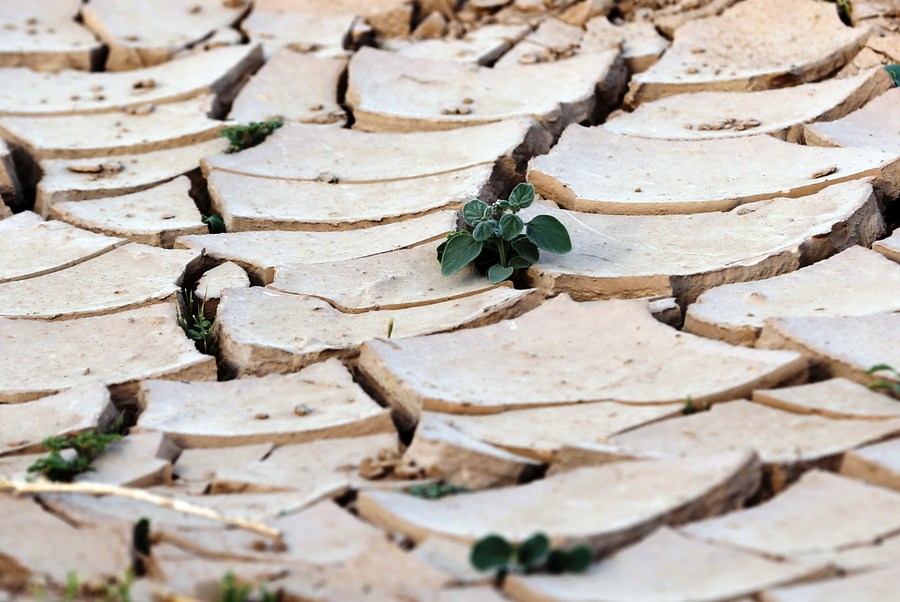
Desert plants grow on cracked land in a dry agricultural area due to water scarcity in Salahudin province, Iraq, June 14, 2022. (Xinhua/Khalil Dawood)
According to the UN Environment Program, Iraq ranks as the fifth most vulnerable country in the world to climate change.
Jeanine Hennis-Plasschaert, UN special envoy for Iraq, warned in her briefing to the UN Security Council on May 18 that water represents the most critical climate emergency for Iraq.
"By 2035, it is estimated that Iraq will have the capacity to meet only 15 percent of its water demands. 90 percent of Iraq's rivers are polluted, and seven million people are currently suffering from reduced access to water," she stressed.
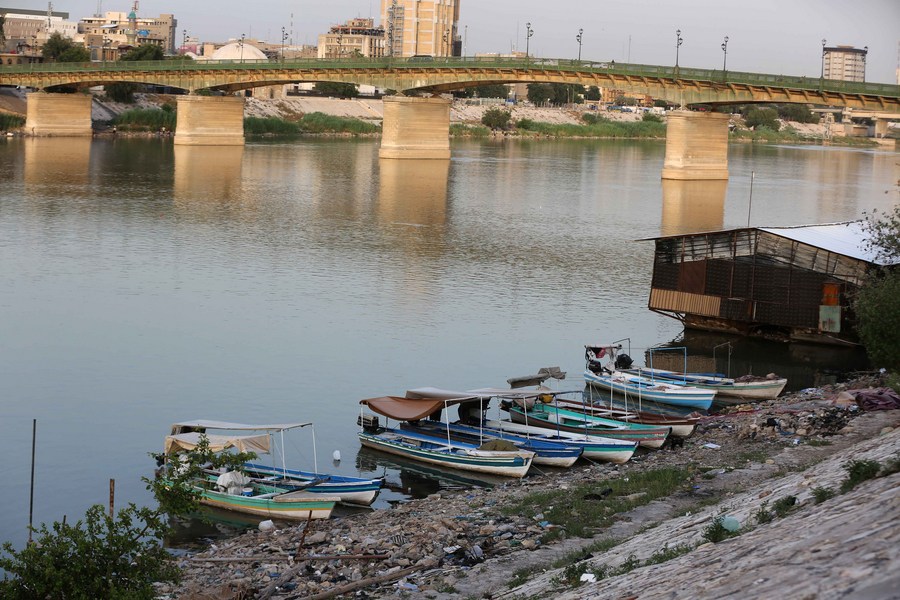
The photo shows the western bank of Tigris River in Baghdad, Iraq, on May 16, 2023. (Xinhua/Khalil Dawood)
Iraq heavily relies on the Tigris and Euphrates rivers, which originate in Türkiye, to fulfill its water needs, while the water levels in the twin rivers have declined significantly over the past years as a result of drought, the construction of dams, and the diversion of water upstream, according to Iraqi officials.
Hatem Faisal al-Jubouri, deputy director general of the Directorate of Animal Resources of Iraq's Ministry of Agriculture, told Xinhua that "the fisheries sector suffered from great neglect in the previous period, from the draining of the marshes and the migration of fish breeders, in addition to the cutting of rivers by neighboring countries, which led to a shortage of fish production."
For thousands of years, the fresh waters of Iraq's rivers, lakes, and marshes have provided a home to a variety of fish. Some are so delicious, such as Binni, Shabbat (Carp), Kattan, Zubaidi, and Mangar, which top the menu of national dishes.
However, al-Jubouri said that water scarcity, overfishing, and pollution have pushed many types of fish to the edge of extinction, especially those that Iraqis traditionally desire, prompting his directorate to establish several fish hatcheries across the country. ■


